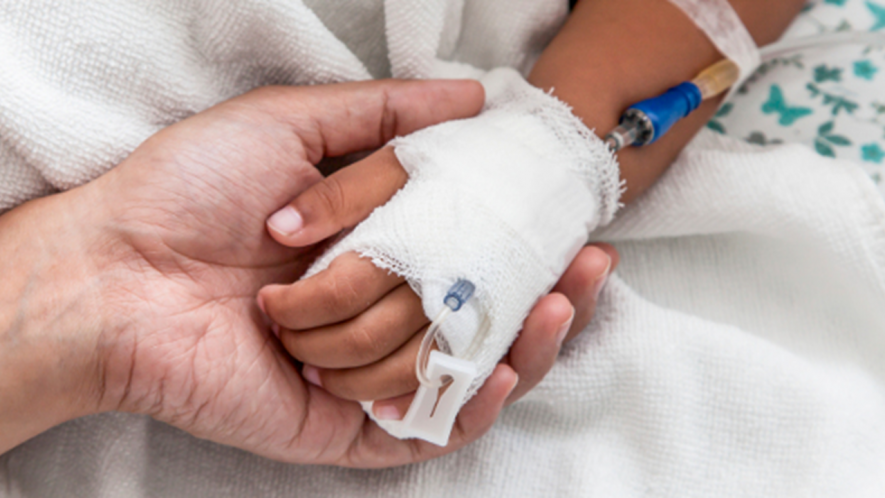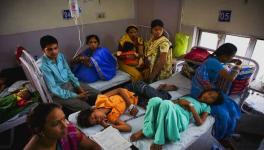‘COVID-19 Disrupted Paediatric Cancer Care at 150 of 200 Hospitals Globally’

Representational image. | Image Courtesy: cancer.org
New Delhi: The COVID-19 pandemic has disrupted paediatric cancer care at about 150 of over 200 hospitals surveyed in a study, published in The Lancet Journal, which calls for better oncology services worldwide to prevent future public health emergencies.
The survey covered 311 healthcare workers at 213 institutions in 79 countries from June 22 to August 21, 2020, and included a range of questions to assess hospital characteristics, the number of patients diagnosed with COVID-19, and disruptions and adaptations to cancer care.
According to the researchers, including Rashmi Dalvi from the Bombay Hospital Institute of Medical Sciences in Mumbai, close to half of the reported hospitals diagnosed fewer new cases of pediatric cancer than expected, while over one-third noted a rise in the number of patients who abandoned treatment.
The study also reported that nearly one in 10 hospitals part of the survey closed their paediatric cancer units completely at some stage during the pandemic along with a "considerable disruption" to radiotherapy.
The researchers said there were a wide range of impacts on hospitals across the world due to the pandemic, including reductions in available clinical staff, paediatric cancer beds, and personal protective equipment (PPE).
However, they said the effects on hospitals in low- and middle-income countries (LMICs) were more pronounced, with changes to chemotherapy due to treatment agent shortages, treatment abandonment, and disruptions to radiotherapy among issues frequently reported.
"Our findings suggest that COVID-19 has had a greater impact on childhood cancer care globally than single-region studies had suggested, with centres in LMICs particularly hard hit," said study co-author Daniel Moreira from the St. Jude Children's Research Hospital in the US.
"Hospitals in LMICs were under strain even before the pandemic, with fewer resources and less access to care for children with cancer, so our results seem to reflect the relative strength of different healthcare systems around the world," Moreira said.
The researchers found that the effects of the pandemic on paediatric cancer care were largely independent of the number of COVID-19 cases in individual hospitals or at national levels.
They said nearly one third of the respondents reported decreased financial support, while two thirds said there was a reduction in available clinical staff.
Around one in five hospitals noted a reduction in availability of paediatric cancer beds, the study noted.
While some impacts on paediatric cancer care did not vary based on country income level, the scientists said LMICs were disproportionately affected in a number of areas such as chemotherapy due to treatment agent shortages, and decreases in their usual government funding for cancer care.
"The long-term impacts on childhood cancer outcomes are not yet clear. Our findings highlight the need for ongoing assessment of resource needs during the pandemic and the sharing of successful strategies to tackle the negative effects on paediatric cancer care," said Dylan Graetz from the St. Jude Children's Research Hospital.
Citing the limitations of the research, the study authors said the results reflect only the knowledge and opinions of respondents at one stage during a fast changing pandemic.
Since the survey was conducted in English, they said the results may not be generalisable to small, low-resource settings where staff do not speak the language.
However, the researchers believe the findings capture a comprehensive description of the global effect of this pandemic on paediatric oncology care.
Get the latest reports & analysis with people's perspective on Protests, movements & deep analytical videos, discussions of the current affairs in your Telegram app. Subscribe to NewsClick's Telegram channel & get Real-Time updates on stories, as they get published on our website.
























